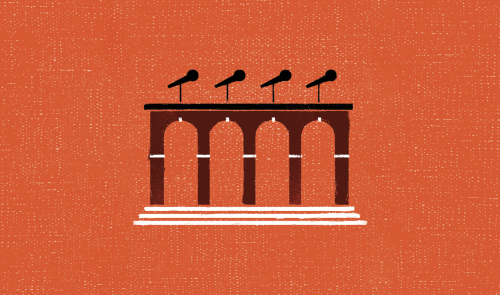Engelberg Center hosts symposium on the role of the consumer in law

A symposium presented by the Engelberg Center on Innovation Law & Policy on October 16–17 examined “The Consumer”—a figure that is frequently cited in antitrust, intellectual property and other areas of law and policy, but one that often remains ill-defined. A series of discussion panels probed questions such as the role of the patient as advocate and expert in interacting with medical technology; the range of technologies under the umbrella of artificial intelligence and their use by consumers; and how intellectual property rights affect how consumers behave, among other issues.
Serving as moderators were NYU Law faculty members Rochelle Dreyfuss, Pauline Newman Professor of Law Emerita; Jeanne Fromer, Walter J. Derenberg Professor of Intellectual Property Law; Scott Hemphill, Alfred B. Engelberg Professor of Law and Economics; Professor Christopher Morten; Professor Jason Schultz; and Christopher Jon Sprigman, Murray and Kathleen Bring Professor of Law. (Recordings of all panels and keynote speeches are available through the center’s podcast, Engelberg Center Live!.)
The keynote speaker on the first day, Nancy Mahon ’89, senior vice president of Global Corporate Citizenship & Sustainability at the Estée Lauder Companies, spoke about regulatory and legal challenges involved in the wide-scale creation of consumer products that are designed to be reusable or manufactured with regenerative materials. Citing her own work at Estée Lauder, she also mentioned retailers such as Patagonia, which encourages consumers to repair and resell their clothing and [they] have integrated these practices into their retail model.
“As consumers demand this shift, the question becomes: how can our legal frameworks—IP, competition, and consumer protection [law]—evolve from the tools of control to enablers of circular innovation?” said Mahon. “The law must balance protection and participation—protecting creativity and brand integrity, ensuring open and fair markets and giving consumers truthful, comparable information.”
During her keynote on the second day of the symposium, entertainment lawyer and legal analyst Lisa Bonner ’97 offered her own analysis of how the consumer has transformed from a passive recipient of the law to an active force shaping regulation and policy, and how the role of consumer may continue to change in the future.
“If the past two decades have been about consumer empowerment through access and market regulation, the coming decade will be about consumer entanglement through algorithms,” Bonner said. “In AI, we are entering an era where consumption itself is shaped by machine learning systems trained on us, by us, on our clicks, our voices, our searches and our preferences. Every interaction becomes a data point that trains the system’s understanding of what we want or what it thinks that we want. In this feedback loop, the consumer is no longer simply a buyer or a viewer. The consumer has become both the product and the producer, the raw material that trains the machine and the audience that consumes what the machine produces in return.”
Selected quotes from the panels at the Engelberg Center symposium:
Mark McKenna, UCLA School of Law, in “IP Rights as a Signal to Consumers”:
“What I’m going to focus on here is…the way that claims of IP rights influence the existence or the scope of those rights in the first place—meaning the way that they feed back into the sense of what’s legally recognized.… The most obvious place to me to talk about this is in the context of trademark rights, because they’re especially susceptible [to] this phenomenon, because those rights depend so much on consumer understanding generally, right?… Trademark rights exist because of the way consumers understand some word or design or feature, but consumers’ understanding of the significance of those features can often be shaped by their beliefs about what law requires, about what others are allowed to do with those things.”
Aaron Perzanowski, University of Michigan Law School, in “Sustainability in the Eye of the Beholder”:
“The right to repair debate, fundamentally, is about the question of whether we as consumers have the right and the ability to fix the electronics, the appliances, the vehicles that we purchase outside of the authorized channels that manufacturers provide. So firms have really strong incentives, in many cases, to assert control over the repair process…. Fundamentally, IP here, from the manufacturer’s perspective, is another tool that they can use to interfere with consumer repair.”

